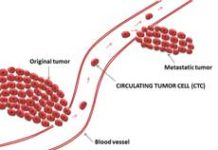Results from an extensive, longitudinal follow-up of the Vax-On study of mRNA-BNT162b2 immunogenicity in patients with actively treated solid malignancies suggest that proximity to cancer treatment does not affect seroconversion response, which remains adequate even 5 months after the second COVID-19 vaccine dose. In contrast to healthy adults given full mRNA-vaccine schedule, antibody titre decreased markedly over time. Multivariate analysis ruled out the predictive value of a specific type of cancer treatment, but suggested a potential detrimental effect of corticosteroid therapy, male sex, and ECOG performance status (PS) 2 on humoral response.
These findings, along with the deployment of reliable assays for cellular immunity, may provide additional evidence in favour of the third dose of vaccine for actively treated patients with cancer, according to Dr Fabrizio Nelli of the Department of Oncology and Haematology, Medical Oncology Unit, Central Hospital of Belcolle in Viterbo, Italy and colleagues who published updated study findings on 9 December 2021 in the Annals of Oncology.
The authors wrote that their preliminary findings confirmed a favourable safety profile and suggested that proximity to treatment hampers immune response to the first vaccine dose (timepoint-2). The second dose induced an exponential rise in anti-Spike protein IgG titre and seroconversion rates up to >90%, abrogating the disparity between the cohorts (timepoint-3). Antibody response assessment scheduled 6 months after the first dose served as a timepoint-4.
Patients on active treatment within 28 days of timepoint-4 represented the exposed cohort compared with the control cohort of those who had discontinued by at least 28 days. The present analysis involved 311 patients, including 203 in the exposed cohort, all of whom remained on active treatment from timepoint-3, and 108 in the control cohort.
The median IgG titre in control cohort versus exposed cohort, median log IgG titre, and seroconversion rates did not differ at timepoint-4. Compared with timepoint-3, paired assessment at timepoint-4 revealed a significant 4- to 6-fold decrease in median IgG titre within the same cohort (p < 0.001), with no difference for seroconversion rates.
Univariate comparison with the control cohort at timepoint-4 showed a significantly higher IgG titre for targeted therapy subgroup (p = 0.039), with a lower estimate for chemotherapy and biological agent subgroup (p = 0.035).
Multivariate analysis was performed by fitting a generalised linear model on log IgG titre and seroconversion response as a function of covariates significantly associated with immunogenicity after previous evaluation. Antibody response did not differ according to antineoplastic treatment subgroup. Male sex (p = 0.002) and ECOG PS2 (p = 0.02) were both significantly associated with lower log IgG titre, but only initial corticosteroid therapy was also related to lack of seroconversion (p = 0.005).
Only one case of mild COVID-19 was documented in the entire patient group after the second vaccine dose.
The authors concluded that their findings may provide additional evidence in favour of the third vaccine dose for actively treated patients with cancer.
Reference
Nelli F, Fabbri A, Onorato A, et al. Six-months immunogenicity of COVID-19 mRNA-BNT162b2 vaccine in actively treated cancer patients: Updated results of the Vax-On study. Annals of Oncology; Published online 9 December 2021. DOI: https://doi.org/10.1016/j.annonc.2021.12.001








